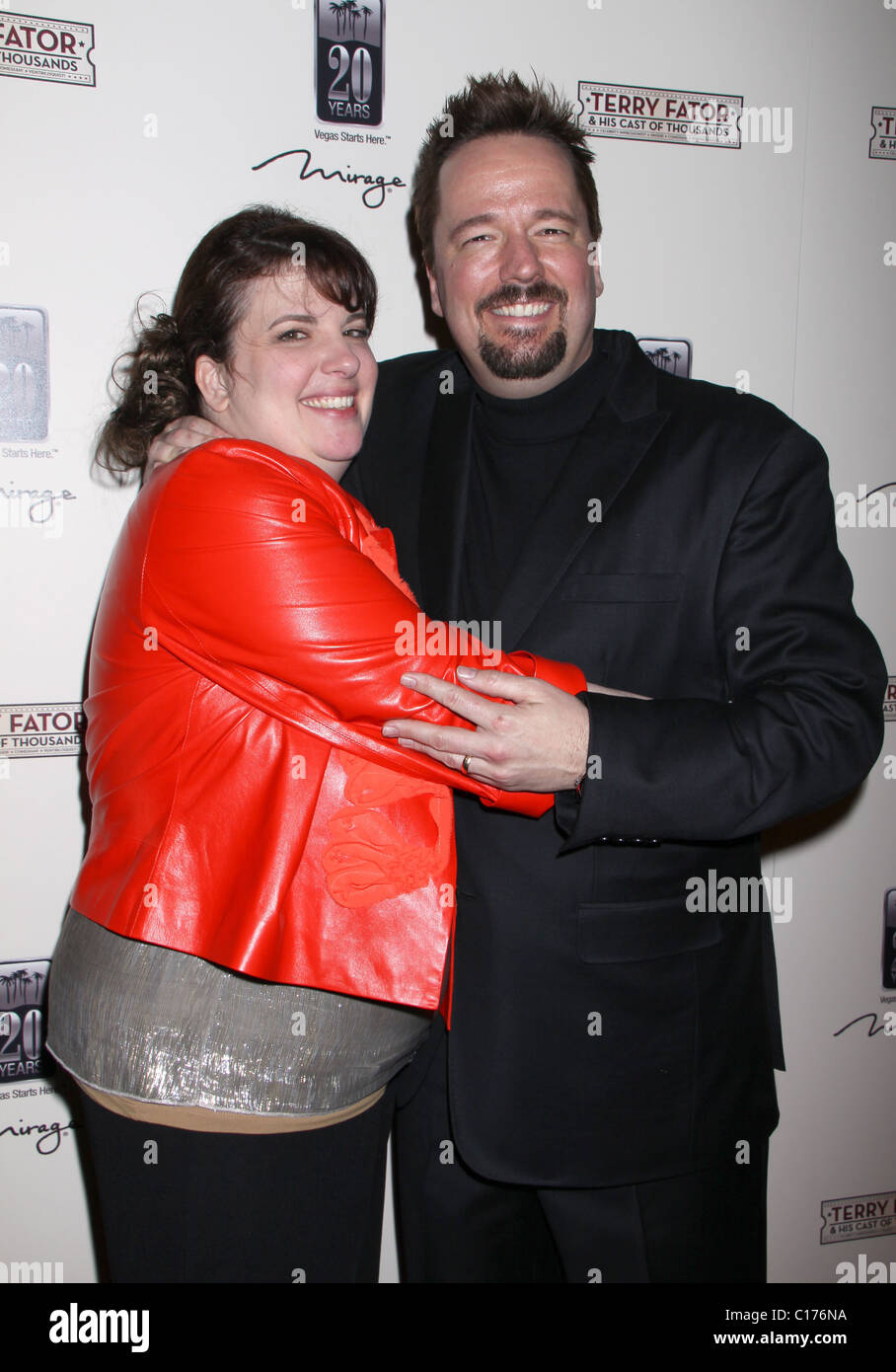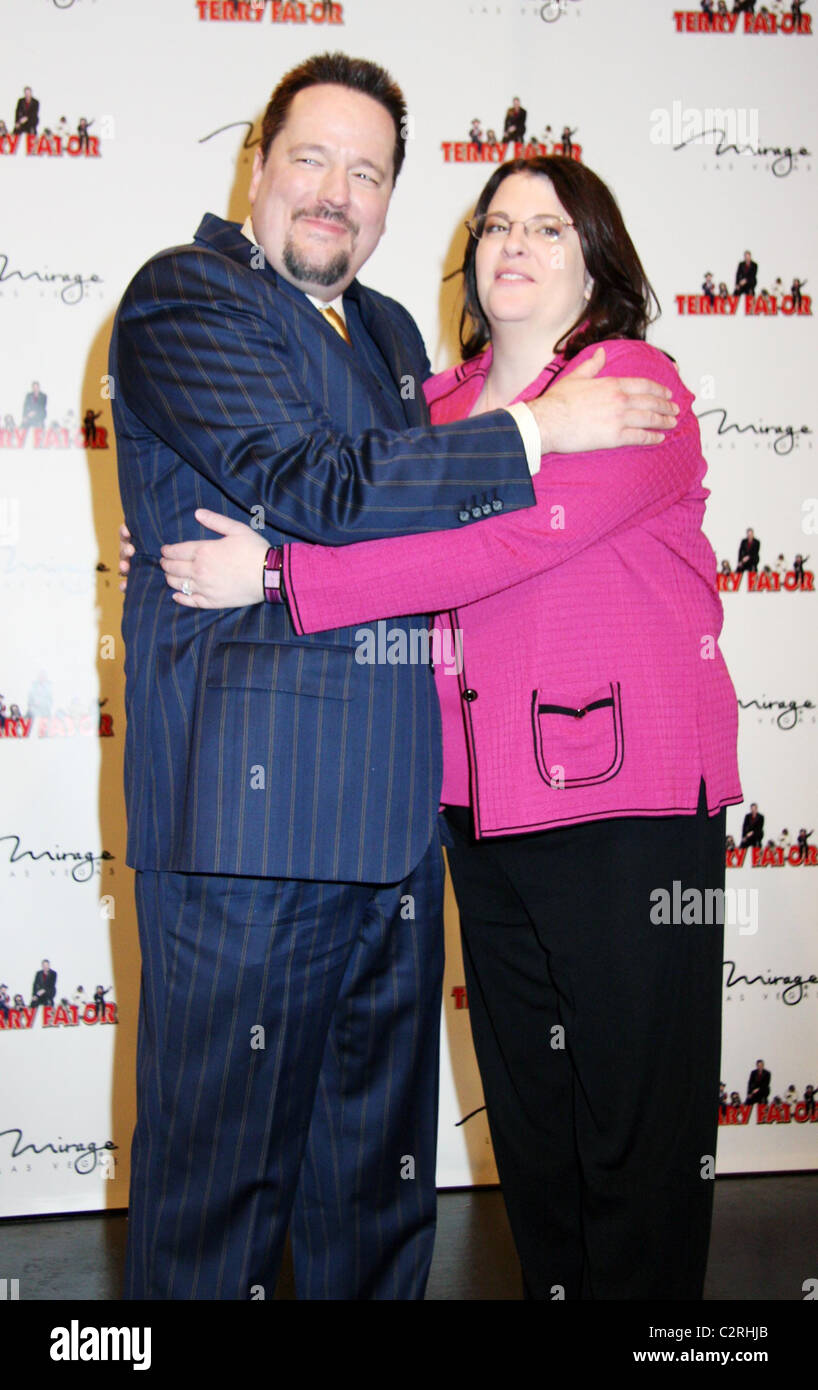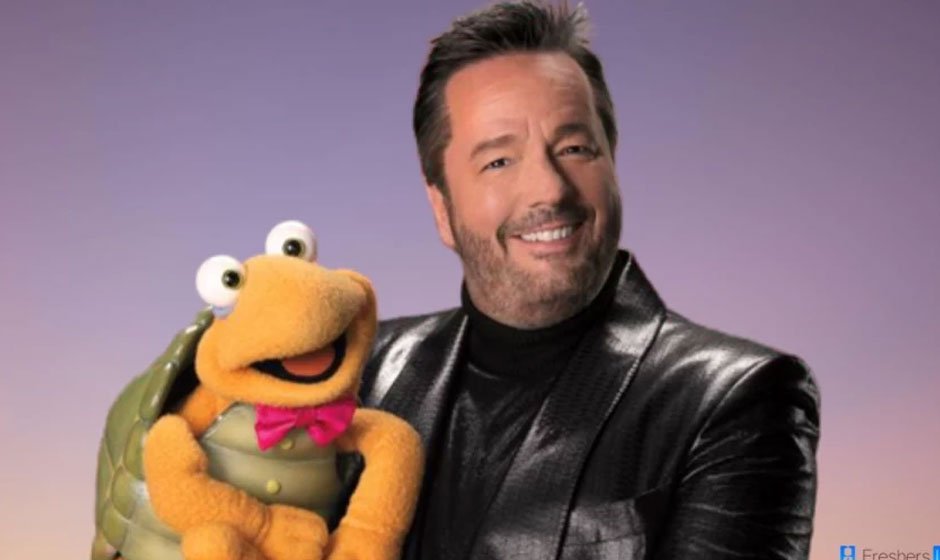Melinda Fator: Inspiring Leadership And Career Success
Melinda Fator is an American speech-language pathologist and author. She is known for her work in the field of augmentative and alternative communication (AAC), and for her advocacy for people with disabilities.
Fator was born in 1956 in Cleveland, Ohio. She earned her bachelor's degree in speech-language pathology from Ohio University in 1978 and her master's degree from the University of Iowa in 1980. She began her career as a speech-language pathologist in the public schools, where she worked with children with a variety of communication disorders. In 1984, she joined the faculty of the University of North Carolina at Chapel Hill, where she is now a professor in the Department of Allied Health Sciences.
Fator's research interests include the development of AAC systems, the use of AAC in educational settings, and the social and emotional needs of people with disabilities. She has published numerous articles and book chapters on these topics, and she is the author of the book Augmentative and Alternative Communication: Supporting Children and Adults with Complex Communication Needs (2014).
- Do Led Lights Cause Fires
- Christian Bale Tacoma Truck
- How Rich Is Mariah Carey
- How Old Is Desi Banks
- What Car Does Luka Doncic Drive
Fator is a Fellow of the American Speech-Language-Hearing Association (ASHA) and a recipient of the ASHA Honors of the Association. She is also a member of the International Society for Augmentative and Alternative Communication (ISAAC) and the American Association on Intellectual and Developmental Disabilities (AAIDD).
Melinda Fator
Melinda Fator is an American speech-language pathologist and author known for her work in augmentative and alternative communication (AAC) and advocacy for people with disabilities.
- Speech-language pathologist
- AAC specialist
- Author
- Educator
- Advocate
- Leader
Fator's work has had a significant impact on the field of AAC. She has developed new AAC systems, trained professionals in the use of AAC, and advocated for policies that support people with disabilities. She is a passionate advocate for the rights of people with disabilities and believes that everyone has the right to communicate.
- Where Does Zarna Garg Live
- Burt Reynolds Estate
- Dale Earnhardt Estate
- Where Does Andrew Luck Live
- Magic Johnsons Home
Fator's work is an inspiration to many. She is a role model for people with disabilities and a tireless advocate for their rights. Her work has made a real difference in the lives of many people with disabilities and their families.
1. Speech-language pathologist
A speech-language pathologist (SLP) is a healthcare professional who specializes in the diagnosis and treatment of communication and swallowing disorders. SLPs work with people of all ages, from infants to the elderly. They help people with a variety of communication disorders, including speech sound disorders, language disorders, and fluency disorders. SLPs also work with people who have difficulty swallowing.
- Diagnosis and evaluation: SLPs assess and evaluate individuals' communication and swallowing abilities. They use a variety of tools and techniques to gather information about an individual's communication and swallowing skills, including observation, interviews, and standardized testing.
- Treatment: SLPs develop and implement treatment plans for individuals with communication and swallowing disorders. Treatment may include exercises to improve speech sound production, language comprehension, and fluency. SLPs may also provide therapy to help people improve their swallowing skills.
- Education and counseling: SLPs provide education and counseling to individuals with communication and swallowing disorders, as well as their families and caregivers. They help people understand the nature of their disorder and how to manage it. SLPs also provide counseling to help people cope with the emotional and social challenges associated with a communication or swallowing disorder.
- Advocacy: SLPs advocate for the rights of individuals with communication and swallowing disorders. They work to ensure that people with communication and swallowing disorders have access to the services and resources they need.
Melinda Fator is a speech-language pathologist who has made significant contributions to the field of AAC. She has developed new AAC systems, trained professionals in the use of AAC, and advocated for policies that support people with disabilities. Fator's work has helped to improve the lives of many people with communication disorders.
2. AAC specialist
An AAC specialist is a professional who has specialized training and experience in augmentative and alternative communication (AAC). AAC specialists work with individuals who have difficulty communicating using speech, such as people with cerebral palsy, autism, or traumatic brain injury.
AAC specialists assess individuals' communication needs and develop and implement AAC systems that meet those needs. AAC systems can include low-tech devices, such as picture boards and communication books, as well as high-tech devices, such as speech-generating devices and computer-based communication systems.
AAC specialists also provide training and support to individuals who use AAC systems, as well as their families and caregivers. They teach individuals how to use their AAC systems effectively and how to communicate with others using AAC.
Melinda Fator is a speech-language pathologist and AAC specialist who has made significant contributions to the field of AAC. She has developed new AAC systems, trained professionals in the use of AAC, and advocated for policies that support people with disabilities.
Fator's work has helped to improve the lives of many people with communication disorders. She is a pioneer in the field of AAC and her work has helped to make AAC more accessible to people with disabilities.
3. Author
Melinda Fator is an accomplished author in the field of augmentative and alternative communication (AAC). She has written extensively about AAC, including books, articles, and book chapters.
- Books
Fator has written several books about AAC, including Augmentative and Alternative Communication: Supporting Children and Adults with Complex Communication Needs (2014) and The AAC Pocket Guide (2017). Her books are widely used by SLPs, educators, and other professionals who work with people with communication disorders.
- Articles
Fator has published numerous articles about AAC in peer-reviewed journals. Her articles have covered a wide range of topics, including the development of AAC systems, the use of AAC in educational settings, and the social and emotional needs of people with disabilities.
- Book chapters
Fator has also written several book chapters about AAC. Her chapters have appeared in books such as Communication Disorders in Multicultural Populations (2010) and AAC for Individuals with Autism Spectrum Disorders (2013).
- Other publications
In addition to her books, articles, and book chapters, Fator has also written other publications about AAC, including fact sheets, technical reports, and training manuals.
Fator's work as an author has had a significant impact on the field of AAC. Her books, articles, and other publications have helped to raise awareness of AAC and to promote its use. Fator's work has also helped to train professionals in the use of AAC and to improve the lives of people with communication disorders.
4. Educator
Melinda Fator has been an educator in the field of augmentative and alternative communication (AAC) for over 30 years. She has taught at the university level, trained professionals in the use of AAC, and developed educational resources for people with communication disorders.
- Teaching
Fator has taught AAC at the university level for over 20 years. She has developed and taught courses on AAC for both undergraduate and graduate students. Her teaching has helped to train a new generation of professionals who are knowledgeable about AAC and who are committed to providing quality services to people with communication disorders.
- Training
Fator has also provided training on AAC to professionals from a variety of disciplines, including speech-language pathologists, occupational therapists, physical therapists, and teachers. Her training has helped professionals to develop the skills and knowledge they need to use AAC effectively with their clients.
- Resource development
Fator has developed a variety of educational resources on AAC, including books, articles, and training manuals. Her resources are widely used by professionals and families who are interested in learning more about AAC.
- Advocacy
Fator is also an advocate for people with communication disorders. She has worked to raise awareness of AAC and to promote its use. She has also worked to ensure that people with communication disorders have access to the services and resources they need.
Fator's work as an educator has had a significant impact on the field of AAC. She has helped to train a new generation of professionals who are committed to providing quality services to people with communication disorders. She has also developed educational resources that are widely used by professionals and families. And she has been a tireless advocate for people with communication disorders.
5. Advocate
Melinda Fator is a passionate advocate for people with disabilities, particularly those with communication disorders. She has used her platform as a speech-language pathologist, author, and educator to raise awareness of the needs of people with disabilities and to promote their rights.
Fator has been involved in a number of advocacy initiatives, including:
- Working to ensure that people with disabilities have access to augmentative and alternative communication (AAC) devices and services.
- Advocating for policies that support people with disabilities, such as the Americans with Disabilities Act.
- Providing training and resources to professionals who work with people with disabilities.
- Speaking out against discrimination and prejudice against people with disabilities.
Fator's advocacy work has made a real difference in the lives of people with disabilities. She has helped to raise awareness of the needs of people with disabilities and to promote their rights. She has also helped to train a new generation of professionals who are committed to providing quality services to people with disabilities.
Fator's work as an advocate is an important part of her identity as a speech-language pathologist. She believes that everyone has the right to communicate and that people with disabilities should have the same opportunities as everyone else. Fator's advocacy work is an inspiration to others and has helped to make the world a more inclusive place for people with disabilities.
6. Leader
Melinda Fator is a leader in the field of augmentative and alternative communication (AAC). She has made significant contributions to the field through her research, teaching, and advocacy work.
- Research
Fator has conducted groundbreaking research on AAC. Her research has helped to develop new AAC systems and to improve the use of AAC in educational settings. She has also studied the social and emotional needs of people with disabilities.
- Teaching
Fator is a dedicated educator. She has taught AAC at the university level for over 20 years. She has also provided training on AAC to professionals from a variety of disciplines. Her teaching has helped to train a new generation of professionals who are knowledgeable about AAC and who are committed to providing quality services to people with communication disorders.
- Advocacy
Fator is a passionate advocate for people with disabilities. She has worked to raise awareness of AAC and to promote its use. She has also worked to ensure that people with disabilities have access to the services and resources they need. Her advocacy work has made a real difference in the lives of people with disabilities.
Fator's leadership in the field of AAC has had a significant impact on the lives of people with communication disorders. She is a role model for other professionals in the field and an inspiration to people with disabilities.
Frequently Asked Questions about Melinda Fator
This section addresses frequently asked questions about Melinda Fator, an esteemed speech-language pathologist, author, educator, advocate, and leader in the field of augmentative and alternative communication (AAC).
Question 1: What is Melinda Fator's primary area of expertise?
Melinda Fator is an expert in the field of augmentative and alternative communication (AAC), a set of tools and strategies used to assist individuals with communication difficulties.
Question 2: What are some of Melinda Fator's significant contributions to the field of AAC?
Fator has played a pivotal role in developing new AAC systems, training professionals in AAC use, and advocating for policies that support people with disabilities. Her research, publications, and educational initiatives have significantly advanced the understanding and application of AAC.
Question 3: How has Melinda Fator's work impacted the lives of people with communication disorders?
Fator's dedication to improving communication accessibility has empowered countless individuals with communication disorders. Her work has provided them with essential tools, knowledge, and support, enabling them to participate more fully in society.
Question 4: What are some key aspects of Melinda Fator's advocacy efforts?
Fator is a tireless advocate for individuals with disabilities, particularly those with communication challenges. She has dedicated herself to promoting awareness, ensuring access to AAC services and resources, and challenging discrimination and prejudice.
Question 5: How can I learn more about Melinda Fator's work and contributions?
Interested individuals can explore Fator's publications, attend her presentations, and connect with her through professional organizations. Additionally, her website and social media platforms provide valuable insights into her ongoing work and advocacy.
Question 6: What is Melinda Fator's legacy in the field of communication disorders?
Melinda Fator's unwavering commitment to improving communication for individuals with disabilities has left an indelible mark on the field. She is recognized as a respected authority, an inspiring mentor, and a passionate advocate who has transformed the lives of countless individuals and advanced the frontiers of AAC.
In conclusion, Melinda Fator's multifaceted contributions to the field of augmentative and alternative communication have had a profound impact on the lives of people with disabilities. Her dedication to research, education, advocacy, and leadership has significantly improved communication accessibility, empowered individuals, and paved the way for continued advancements in AAC.
Stay tuned for the next section of our article, where we will delve deeper into Melinda Fator's captivating journey and groundbreaking work.
Tips by Melinda Fator for Enhancing Communication through AAC
Melinda Fator, a renowned expert in augmentative and alternative communication (AAC), has dedicated her career to empowering individuals with communication challenges. Her profound insights and practical advice have transformed the lives of countless individuals. Here are some valuable tips from Melinda Fator to enhance communication through AAC:
Tip 1: Understand the Individual's Unique Needs
Every individual's communication needs are unique. Take the time to assess their abilities, challenges, and preferences. This personalized approach ensures that the AAC system aligns with their specific requirements.
Tip 2: Start with a Simple System
Begin with a basic AAC system that is easy to understand and use. Gradually introduce more complex features as the individual's skills and confidence grow. This approach fosters success and minimizes frustration.
Tip 3: Focus on Functional Communication
Prioritize teaching essential communication skills that enable individuals to participate in daily activities and express their needs effectively. This practical focus empowers them to communicate in meaningful and purposeful ways.
Tip 4: Encourage Active Participation
Actively involve the individual in the communication process. Provide opportunities for them to make choices, ask questions, and express their thoughts and feelings. This fosters a sense of ownership and engagement.
Tip 5: Utilize Multimodal Approaches
Combine AAC with other communication methods, such as gestures, facial expressions, and body language. This multimodal approach enhances understanding and provides a more comprehensive communication experience.
Tip 6: Provide Ongoing Support and Training
Continuous support and training are crucial for sustained progress. Offer regular opportunities for individuals and their caregivers to practice and refine their AAC skills. This ongoing support empowers them to overcome challenges and maximize their communication potential.
Tip 7: Collaborate with a Team of Professionals
Foster collaboration among speech-language pathologists, occupational therapists, educators, and other professionals involved in the individual's care. This team-based approach ensures a comprehensive understanding of the individual's needs and facilitates a cohesive intervention plan.
Tip 8: Advocate for Accessibility
Advocate for environments and technologies that support AAC use. Encourage the adoption of AAC-friendly practices in schools, workplaces, and communities. This creates an inclusive environment where individuals with communication challenges can fully participate and thrive.
Incorporating these tips into your approach to AAC can significantly enhance communication outcomes. Remember that every individual's journey is unique, and tailoring the strategies to their specific needs is essential. By embracing these principles, we can empower individuals with communication challenges to reach their full potential and actively engage in the world around them.
Melinda Fator's unwavering dedication to improving communication for individuals with disabilities continues to inspire and guide professionals and caregivers worldwide. Her legacy of innovation and advocacy has paved the way for countless individuals to find their voice and live more fulfilling and connected lives.
Conclusion
The exploration of Melinda Fator's contributions to the field of communication disorders underscores the profound impact one individual can have on improving the lives of others. Her pioneering work in augmentative and alternative communication (AAC) has transformed the way we understand and support individuals with communication challenges.
Fator's legacy lies in her unwavering commitment to empowering individuals to communicate effectively. Through her research, education, advocacy, and leadership, she has raised awareness, developed innovative tools, and challenged societal barriers. Her tireless efforts have created a more inclusive world where individuals with disabilities can fully participate and reach their potential.
As we continue to build upon Fator's groundbreaking work, let us strive to embrace a future where communication is accessible to all. By investing in AAC research, training professionals, and advocating for policies that support individuals with communication challenges, we can create a world where everyone has a voice.
- Does Carrot Top Have A Sister
- Trumps Car Collection
- Seinfeld Vs Larry David Net Worth
- Winter House Jason
- Debi Lee Segura

Terry Fator, Melinda Fator The Opening of Terry Fator and His Cast of

Terry Fator and Melinda Fator Terry Fator winner of 'America's Got

Melinda Fator Profession, Career, Notable Works, Net Worth, & More